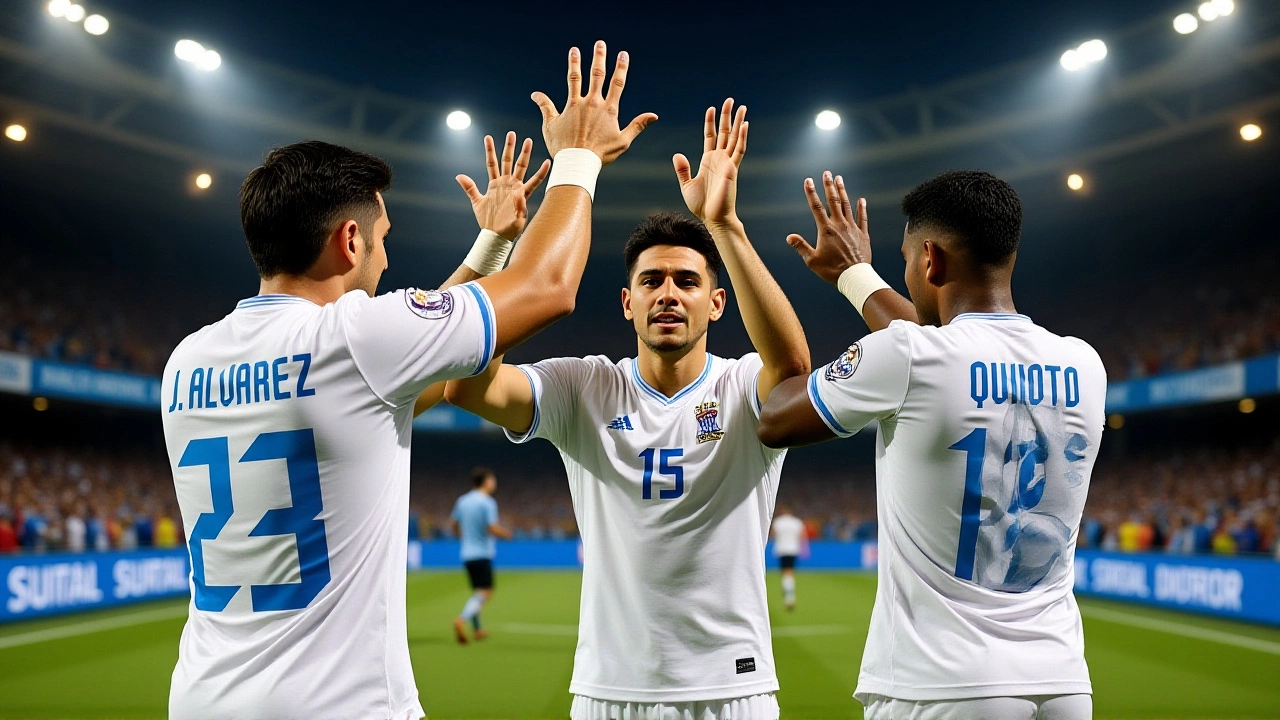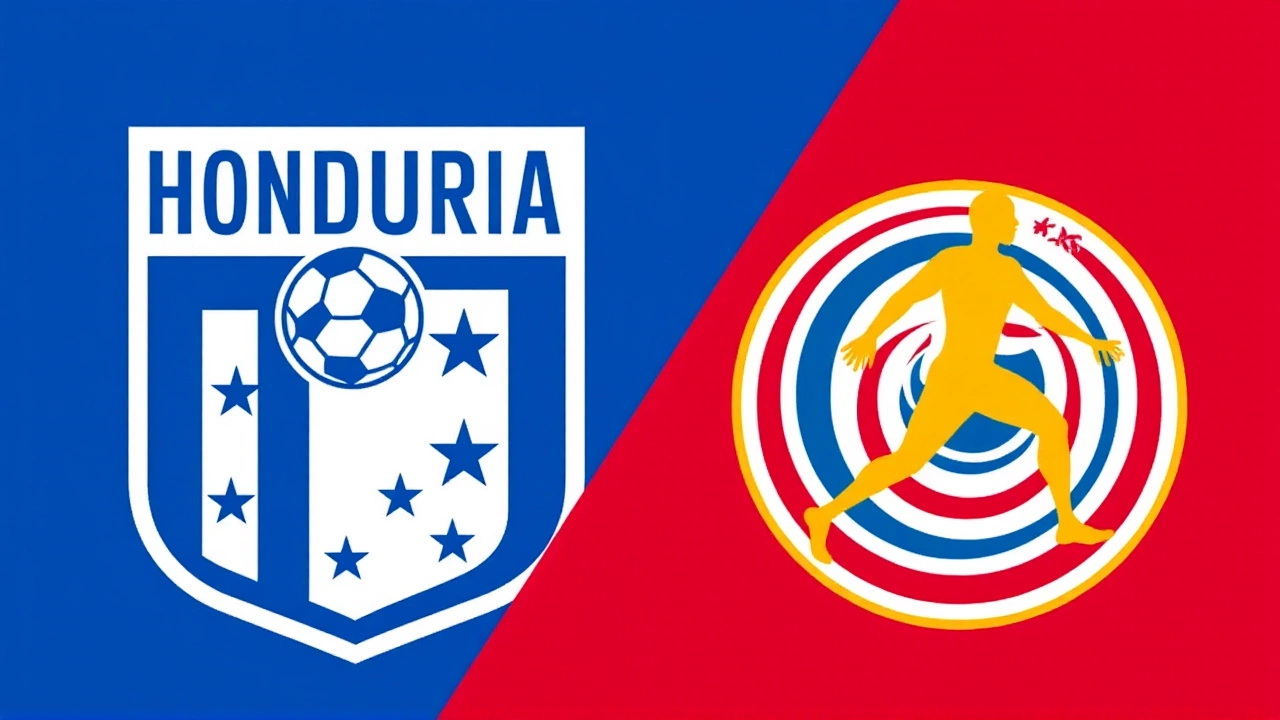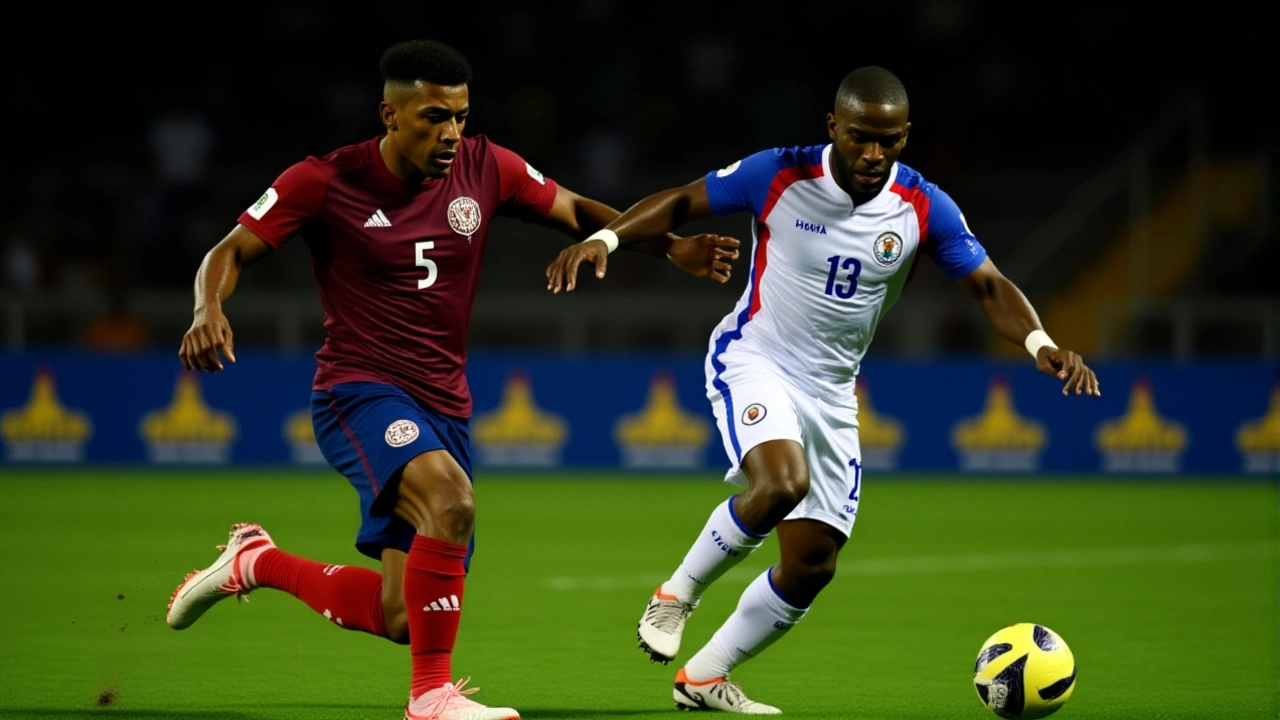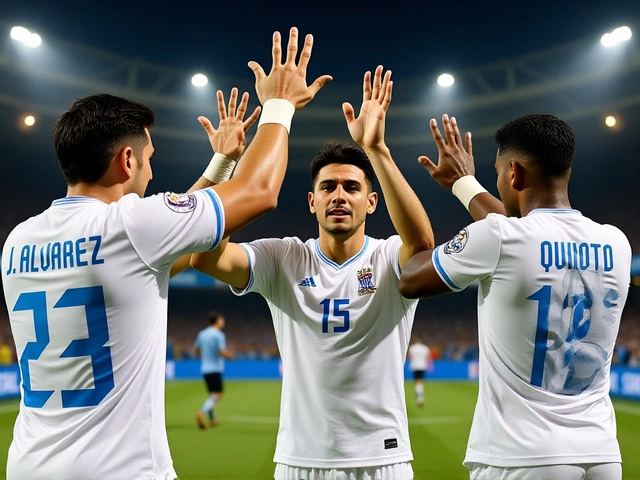Honduras Beats Haiti 3-0 to Top Group C, But Both Teams Fall Short of 2026 World Cup

On October 14, 2025, Tegucigalpa erupted as Honduras crushed Haiti 3-0 at Estadio José de la Paz Herrera Uclés, sending the home crowd into a frenzy. Goals from Rigoberto Rivas, Anthony Lozano, and Romell Quioto in the first half turned what was expected to be a tight battle into a statement win — and briefly, a path to the 2026 FIFA World Cup. But here’s the twist: despite this dominant performance, neither team made it to the tournament. The victory lifted Honduras to first in Concacaf Group C with eight points, but by November 21, the entire qualification landscape had collapsed in the most brutal way possible.
A First-Half Masterclass
It didn’t take long for Honduras to take control. In the 18th minute, Rigoberto Rivas outsmarted Haiti’s defense with a delicate chip over goalkeeper Johny Placide, finishing off a perfectly weighted pass from Kervin Arriaga. Just eight minutes later, Anthony Lozano pounced on a turnover, sprinted down the left flank, and buried a right-footed strike into the bottom corner, assisted by Luis Palma. The crowd was deafening. Then, in the 40th minute, Romell Quioto — Honduras’ most dangerous attacker — latched onto a loose ball at the edge of the six-yard box and slotted it home from close range. Three goals. Zero response. Haiti looked shell-shocked. The halftime whistle came with Honduras leading 3-0 and the defense — anchored by Edrick Menjívar — holding firm. Menjívar, who had already recorded three clean sheets in the previous four matches, added three more saves in the second half, including a fingertip stop on a header from Getsel Montes in the 54th minute. Haiti’s Johny Placide was their lone bright spot, denying Alexy Vega with a spectacular save in the 83rd minute. But it wasn’t enough. The final whistle confirmed Honduras’ dominance — and their temporary place atop Group C.The Unthinkable Collapse
What followed wasn’t just a setback. It was a catastrophe. Honduras, riding high after the Haiti win, traveled to Nicaragua on November 13, 2025, expecting to seal qualification. Instead, they lost 2-1. Haiti, meanwhile, pulled off a stunning 2-1 upset in Costa Rica on the same day. Suddenly, Haiti was tied with Honduras on eight points — but ahead on goal difference. Then came November 21, 2025 — the final matchday. Honduras hosted Costa Rica at Estadio Nacional in San José. A draw would have been enough. Instead, the match ended 0-0. Costa Rica, needing a win to stay alive, played like a team haunted by history. Honduras, perhaps exhausted from the emotional rollercoaster, couldn’t find a spark. Meanwhile, Haiti, in a stunning twist, drew 1-1 with Costa Rica in their final match. The result? Haiti finished second in Group C with eight points, thanks to a superior goal difference. Honduras, despite winning three of their five matches and conceding zero goals in the entire Final Round, finished third. And Costa Rica? They clung to third place with seven points — but it was too little, too late.Costa Rica’s Heartbreak
For Costa Rica, the elimination was devastating. They had qualified for the past three World Cups, including a magical run to the quarterfinals in 2014. Coach Miguel Herrera, who took over in 2024, called it a “painful failure” in his post-match press conference. “We didn’t just lose,” he said. “We lost our identity. We didn’t play like a team that knew what it meant to wear this jersey.” Costa Rica won only one of their six matches in the Final Round — a 1-0 victory over Nicaragua. Their defense, once rock-solid, crumbled under pressure. Their midfield, once the engine of their success, looked disjointed. And their star striker, Keylor Navas’s successor, Christian Bolaños, failed to score a single goal in the entire campaign.
Haiti’s Miracle
For Haiti, the qualification was nothing short of historic. Their last World Cup appearance? 1974. Fifty-two years. A civil war. A devastating earthquake. Decades of underfunding. And yet, they made it. Their roster — featuring players like Pierre (#1), Adé (#4), Pierrot (#7), and Picault (#10) — became national heroes overnight. They scored the most goals in Group C (11), often playing with heart over tactics. Their 2-1 win in Costa Rica wasn’t just a result — it was a revolution. Honduras, meanwhile, had the best defense in the group — zero goals conceded in five matches — but couldn’t translate that into points when it mattered most. Their reliance on counterattacks and set pieces became predictable. When the pressure rose, so did the mistakes.What’s Next?
Haiti will now head to the 2026 FIFA World Cup in Canada, Mexico, and the United States — their first appearance since the 1970s. Honduras, despite dominating the group for months, will be left to wonder “what if.” The Central American Football Union (CONCACAF) will now turn its attention to the intercontinental playoff, where the fourth-place team from Group C — Costa Rica — will face a team from Asia for one final spot. But for Honduras, the dream is over.
Legacy of a Lost Opportunity
This campaign will be remembered not for Honduras’ brilliance, but for their collapse. They had everything: a solid defense, a home advantage, and momentum. But football doesn’t reward consistency alone — it rewards resilience under pressure. Haiti, battered and overlooked, found it. Honduras, favored and polished, didn’t.Frequently Asked Questions
How did Haiti qualify for the 2026 World Cup after losing to Honduras 3-0?
Despite the 3-0 loss to Honduras in October, Haiti earned crucial wins later in the campaign, including a 2-1 upset in Costa Rica and a 1-1 draw in their final match. Goal difference became the tiebreaker, and Haiti finished second in Group C with eight points, edging out Honduras on goal difference after Honduras lost to Nicaragua and drew with Costa Rica on the final matchday.
Why was Honduras eliminated despite not conceding a single goal in the Final Round?
Honduras’ defense was flawless — zero goals conceded in five matches — but they failed to win their final two games. A 2-1 loss to Nicaragua and a 0-0 draw with Costa Rica meant they couldn’t secure enough points. In a group where every goal mattered, their inability to convert dominance into wins proved fatal, especially when Haiti won key away matches.
What made Costa Rica’s elimination so shocking?
Costa Rica had qualified for every World Cup since 2002 and reached the 2014 quarterfinals. Their failure to win more than one match in the Final Round — combined with poor offensive output — ended a 23-year streak. Coach Miguel Herrera admitted the team lacked cohesion, and key players underperformed, making their exit one of the biggest surprises in Concacaf history.
Who were the key players for Haiti during qualification?
Haiti’s attack was led by Picault (#10) and Pierrot (#7), who combined for seven goals in the Final Round. Midfielder Bellegarde (#14) controlled tempo, while defender Duverne (#22) anchored a unit that improved dramatically after early losses. Goalkeeper Johny Placide was instrumental, making 18 saves across the final three matches, including clutch stops against Honduras and Costa Rica.
What’s the significance of the 2026 World Cup for Haiti?
It’s Haiti’s first World Cup appearance since 1974 — a 52-year gap. For a nation that has endured political instability, natural disasters, and economic hardship, qualifying represents more than sport. It’s a symbol of resilience. The team’s journey, from underfunded training grounds to the global stage, has made them national icons and inspired a generation of Haitian youth.
How did the Estadio José de la Paz Herrera Uclés impact Honduras’ campaign?
The stadium, also known as Estadio Tiburcio Carias Andino, was a fortress for Honduras — they won all three of their home matches in the Final Round, including the 3-0 win over Haiti. The raucous crowd and high altitude gave Honduras a significant edge. But after the Haiti win, their away form collapsed, proving home advantage alone couldn’t carry them through the entire campaign.
